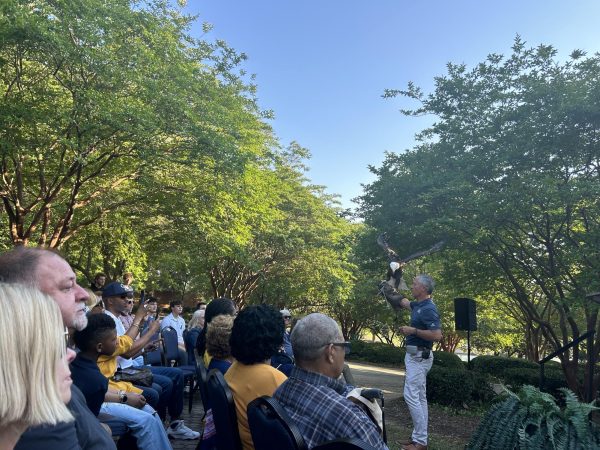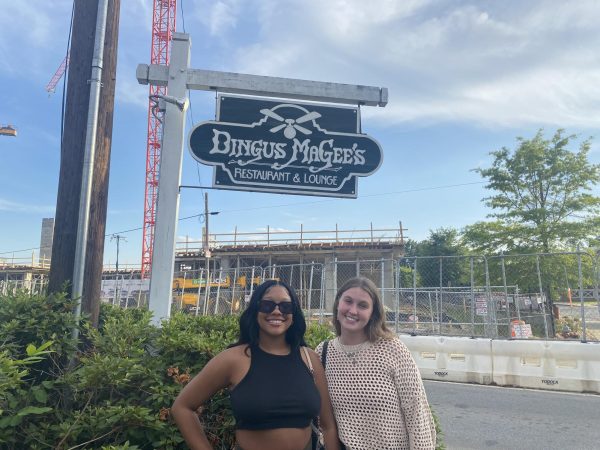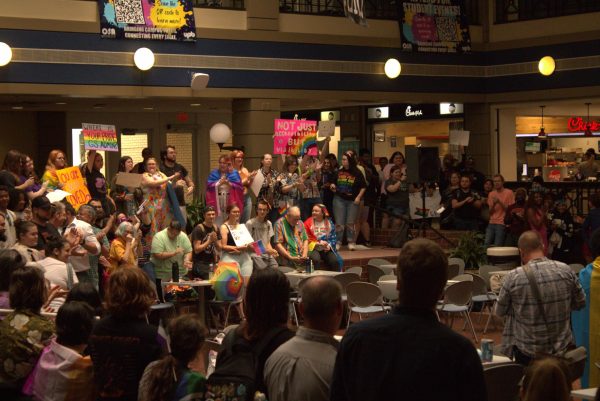African American Greek Life at Georgia Southern
February 12, 2015
Georgia Southern University Greek Life is considered a major part of the campus and student body. Information about each council and the specific fraternities/sororities that it consists of is often considered easily accessible and somewhat common knowledge. However, that can’t be said when it comes to the NPHC, and what some may refer to as the “Divine Nine.”
Overall, 35 chapters make up the Greek community at the university. Each one of the fraternities and sororities that make up the Greek community are a part of a national council.
Specifically, they have the Interfraternity Council (IFC), the Multicultural Greek Council (MGC), the Panhellenic Association (PHA) and the National Pan-Hellenic Council (NPHC).
Compared to other councils and their fraternities and sororities, little to nothing is known about them because of tradition and protocol. The fraternities and sororities that are members of the NPHC are all considered historically African American organizations that were founded in times of socioeconomic strife.
F. Erik Brooks, author of “Pursuing A Promise: A History of African Americans at Georgia Southern University,” states that historically here at Georgia Southern African American Greeks came to the realization that “if they could…study together and pull their resources it would show others that African Americans could actually compete in college,” during a time where very few African Americans were attending higher institutions of learning.
There are quite apparent differences between the NPHC greeks and the other greek organizations on campus. The main distinction most students are familiar with is how they don’t actually know much about the inner-workings of any NPHC chapter. “It is the secretiveness of rush…and you never know what new members [they] are bringing into the organization,” Nycole Key, President of the Epsilon Xi chapter of Zeta Phi Beta Inc. said.
Nycole confirms that it is “primarily true” that the reason NPHC greeks are more secretive is because in the early days of their organizations they would have to meet and congregate behind closed doors for safety reasons.
“It is a private personal thing, and it helps teach new members discretion and what goes on inside the chapter should stay inside the chapter…teaches people what information needs to be public and what needs to be private within a chapter,” Key said.
Jerry Jones, the current NPHC Vice President of Alpha Phi Alpha Inc., states that there are many difference between the NPHC and their other greek counterparts. “Each of our organizations were founded in a time where segregation was very prevalent…[currently] you do have to be a member of the NAACP and [specifically for Alpha Phi Alpha] you do have to be registered to vote [for membership],” Jones said.
He explains that the reasoning behind this is because with Alpha in particular, one of their biggest national programs is called A Voteless People is A Hopeless People, and he argues that they can’t make a change in the community unless they have the power to vote.
“People should care because we are a part of history…we bring diversity, and we demonstrate community service, team work, and most importantly networking,” Key said.
Nadia Dreid contributed to this report.














